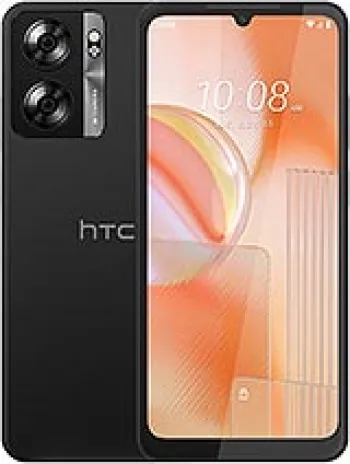
Network Technology
The HTC EVO Design 4G supports multiple network technologies, making it a versatile device for communication. It includes GSM, CDMA, HSPA, and EVDO, allowing users to benefit from a wide range of network capabilities. This variety allows for compatibility with numerous network providers, which is a key factor for users looking for flexibility in their mobile connectivity.
Launch and Availability
Announced and released in October 2011, the HTC EVO Design 4G marked its entry as an affordable yet feature-rich smartphone of its time. Currently, the device is discontinued, reflecting the rapid evolution of smartphone technology and the continual demand for more advanced models. However, during its time, it served as a robust option for many users looking for Android smartphones.
Design and Build
The device has dimensions of 121.9 x 61 x 11.9 mm and weighs 147.4 grams, making it a relatively compact device by modern standards. It includes a Mini-SIM slot and comes in a sleek black color. The build quality was solid, featuring materials that were considered premium at the time, and the design ensured a comfortable grip.
Display Features
The HTC EVO Design 4G comes equipped with a 4.0-inch LCD display, featuring a resolution of 540 x 960 pixels. The screen offers a decent pixel density of approximately 275 ppi, ensuring good clarity for multimedia consumption. The presence of Corning Gorilla Glass provides additional protection against scratches and minor impacts, enhancing the device's durability.
Platform and Performance
Originally shipped with Android 2.3.4 (Gingerbread), the HTC EVO Design 4G is upgradable to Android 4.0 (Ice Cream Sandwich), with the HTC Sense UI 3 overlay enhancing user experience. It is powered by a Qualcomm MSM8655 Snapdragon S2 chipset and a 1.2 GHz Scorpion CPU, complemented by an Adreno 205 GPU. These specifications offer moderate performance, suitable for basic tasks and light gaming applications available at the time.
Memory and Storage
The device offers 4GB of internal storage, coupled with 768MB RAM. While this may seem limited by current standards, it was reasonably sufficient for running apps and storing essential data back in 2011. The inclusion of a dedicated microSDHC slot allows for memory expansion, up to 32GB, providing users with additional storage for media files and applications.
Camera Capabilities
The HTC EVO Design 4G is equipped with a 5MP rear camera featuring autofocus and LED flash, capable of capturing decent quality photos and 720p video. It also has a 1.3MP front-facing camera, usable for video calls and basic selfies. While not the most advanced camera system, it offers satisfactory performance for everyday photography needs of its era.
Audio and Connectivity
For audio, the device includes a loudspeaker and a 3.5mm headphone jack, accommodating a variety of audio peripherals. In terms of connectivity, the EVO Design 4G supports Wi-Fi 802.11 b/g/n with WiMAX, Bluetooth 3.0 with A2DP, and GPS with A-GPS support, ensuring a comprehensive suite of connectivity options for users.
Battery Life
The smartphone is powered by a removable Li-Ion 1520 mAh battery, which provides adequate talk time of up to 6 hours. Though not the most enduring battery life among smartphones, it is consistent with devices from its time, supporting a full day of moderate usage.
Additional Features
The HTC EVO Design 4G is equipped with essential sensors such as an accelerometer, proximity sensor, and compass, facilitating various functionalities across applications. It also features stereo FM radio with RDS, adding to the multimedia experience.
Conclusion
The HTC EVO Design 4G, with its balanced feature set, appealed to users seeking a reliable smartphone experience at an affordable price point upon release. While it has since been surpassed by newer models, it remains a noteworthy device for its contribution to the smartphone market and for catering to the needs of users during its time.
Main Features of HTC EVO Design 4G
- Network Technology: GSM / CDMA / HSPA / EVDO
- Display: 4.0 inches LCD with Corning Gorilla Glass Protection
- Resolution: 540 x 960 pixels, providing ~275 ppi density
- Operating System: Android 2.3.4 (Gingerbread), upgradable to 4.0 (Ice Cream Sandwich) with Sense UI 3
- Chipset & CPU: Qualcomm MSM8655 Snapdragon S2, 1.2 GHz Scorpion
- Memory: 4GB Internal, 768MB RAM, microSDHC card slot with 8GB included
- Main Camera: 5 MP with LED flash and 720p video recording capability
- Selfie Camera: 1.3 MP
- Connectivity: Wi-Fi 802.11 b/g/n, WiMAX 802.16 e, Bluetooth 3.0, A2DP, GPS, A-GPS, Stereo FM radio, RDS, microUSB 2.0
- Sensors: Accelerometer, proximity, compass
- Battery: Removable Li-Ion 1520 mAh with up to 6 hours talk time
- Body: Dimensions - 121.9 x 61 x 11.9 mm, Weight - 147.4 g
HTC EVO Design 4G Disadvantages
- Old Android version: Initially shipped with Android 2.3.4, only upgradable to 4.0 (Ice Cream Sandwich).
- Limited internal storage: Only 4GB of internal storage, which is quite low by modern standards.
- Low RAM: Comes with just 768MB of RAM, which may affect multitasking and performance with newer apps.
- Outdated processor: Equipped with an older Qualcomm Snapdragon S2 chipset and 1.2 GHz Scorpion CPU.
- Average camera quality: Rear camera is 5 MP with only 720p video recording, and the selfie camera is just 1.3 MP.
- Small battery capacity: Removable 1520 mAh battery offering up to 6 hours of talk time might require frequent recharging.
- No LTE support: The device supports EV-DO and HSPA but lacks LTE technology for faster data speeds.
- Mini-SIM slot: Uses a Mini-SIM, which is less commonly used today as most devices have shifted to micro or nano SIMs.
- Discontinued status: The device has been discontinued, which may result in lack of software updates and support.

View Also
More Phones
All Rights Reserved +14266 Phones © Mobilawy 2025

























